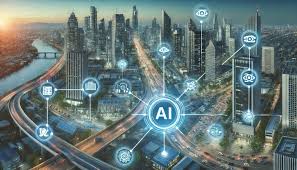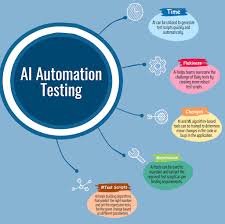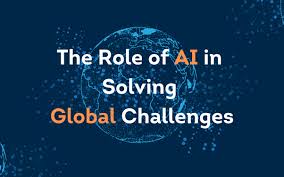
The world’s population is increasingly migrating to cities, with over 60% of the global population projected to live in urban areas by 2030. As cities grow, so do the challenges of managing resources, ensuring sustainability, and improving the quality of life for their inhabitants. This is where Artificial Intelligence (AI) comes in, offering a transformative potential for building smarter, more efficient, and sustainable urban environments. In this blog, we will explore how AI will reshape the future of smart cities, from improving infrastructure to enhancing urban living.
1. Intelligent Traffic Management: Reducing Congestion and Emissions
One of the most pressing issues facing cities today is traffic congestion. AI can revolutionize urban transportation by optimizing traffic flow in real-time. By using machine learning algorithms, AI can analyze data from traffic sensors, cameras, and GPS systems in vehicles to predict traffic patterns and manage traffic lights more efficiently.
For example, AI-powered systems can adjust traffic signal timings based on real-time traffic conditions, reducing bottlenecks and preventing unnecessary idling. Moreover, AI can facilitate the rise of autonomous vehicles, which will work seamlessly within smart city infrastructure to further reduce congestion and improve safety.
In addition, AI can help reduce the environmental impact of urban transportation. By optimizing routes and minimizing traffic jams, cities can reduce fuel consumption and lower greenhouse gas emissions, contributing to cleaner air and a healthier urban environment.
2. Energy Efficiency and Smart Grids
The future of smart cities will be marked by AI-driven energy management systems that enable more efficient energy usage. AI can optimize the distribution of energy in cities through smart grids, which use real-time data to predict and balance electricity supply and demand.
By leveraging AI, smart cities can dynamically adjust energy consumption across households and industries, reducing wastage. For example, AI can predict energy usage patterns, adjusting heating, lighting, and cooling systems based on real-time data, occupancy, and weather conditions. This reduces energy consumption, lowers costs, and ensures the sustainability of the city’s infrastructure.
Moreover, AI can support the integration of renewable energy sources like solar and wind by balancing their intermittent nature with demand. This flexibility helps in creating a greener, more energy-efficient urban environment.
3. Waste Management: Efficient Collection and Recycling
Smart cities are also transforming waste management systems through AI-powered solutions. AI can improve waste collection by optimizing routes for waste collection trucks, reducing fuel consumption, and ensuring that the trucks operate efficiently. Smart bins equipped with sensors can monitor waste levels in real-time, automatically notifying waste management services when they need to be emptied.
Additionally, AI can be utilized to enhance recycling processes. Machine learning algorithms can sort and classify recyclable materials more efficiently than traditional systems, ensuring a higher rate of recycling and reducing the amount of waste that ends up in landfills.
Through predictive analytics, AI can also help cities forecast waste generation trends, allowing for better planning of resources and more sustainable waste management strategies.
4. Public Safety: AI-Powered Surveillance and Emergency Response
AI can play a significant role in enhancing public safety in smart cities. Surveillance systems powered by AI can analyze video feeds in real-time to detect suspicious activities, such as unusual gatherings or traffic incidents. AI can also help identify criminal behavior patterns by analyzing historical data, potentially predicting where crimes may occur and helping law enforcement deploy resources effectively.
Furthermore, AI can assist in emergency response systems. When an emergency occurs, AI can quickly analyze data from sensors, cameras, and social media to assess the situation, identify the most affected areas, and dispatch emergency responders in the most efficient way. AI can even help guide paramedics and fire services to the fastest route based on real-time data, minimizing response times and saving lives.
5. Smart Buildings: Automation and Sustainability
Buildings are central to the concept of smart cities, and AI is transforming how they function. Smart buildings equipped with AI can manage everything from lighting and heating to security and maintenance. Through sensors and smart devices, AI systems can monitor environmental conditions and adjust accordingly for maximum comfort and energy efficiency.
For example, AI can regulate heating, ventilation, and air conditioning (HVAC) systems based on the number of people in a room or the current weather conditions, ensuring optimal energy use. AI can also predict when equipment needs maintenance, preventing costly breakdowns and extending the lifespan of building infrastructure.
The integration of AI in buildings will not only improve energy efficiency but also enhance sustainability by reducing resource consumption, such as water and electricity, and helping to minimize the building's carbon footprint.
6. Urban Planning: Optimizing Land Use and Infrastructure
AI will revolutionize urban planning by enabling more data-driven decisions. By analyzing vast amounts of data from sensors, satellite imagery, and historical records, AI can help urban planners optimize land use, identify areas in need of development, and predict future growth patterns.
For example, AI can assist in planning transportation networks, suggesting the most efficient routes for roads, railways, and bus lines based on population density and traffic patterns. AI can also identify areas prone to flooding or other natural disasters, helping cities design infrastructure that minimizes risk and ensures long-term resilience.
Furthermore, AI can help track the success of urban development projects, providing feedback on what is working and what needs improvement, leading to more informed decisions about future projects.
7. Citizen Engagement and Services: AI-Driven Communication
AI will play a central role in enhancing the relationship between citizens and their city governments. AI-powered chatbots and virtual assistants can provide 24/7 support for residents, answering questions, handling service requests, and even reporting issues such as broken streetlights or potholes. These systems can also analyze public feedback to identify common concerns and help policymakers make informed decisions.
Additionally, AI can facilitate personalized services for residents. For example, AI could suggest nearby events or services based on a person’s preferences, improving the overall quality of life and fostering a sense of community within the city.
8. AI and Social Inclusion: Bridging the Digital Divide
As cities become smarter, AI can help address issues of social inclusion by ensuring that technological advancements benefit all citizens. AI can assist in providing services to marginalized communities, ensuring equitable access to resources such as healthcare, education, and public transportation.
By leveraging AI to improve public services, smart cities can create a more inclusive environment that provides equal opportunities for everyone, regardless of socioeconomic status.
Conclusion: A Smarter, More Sustainable Future
The integration of AI into urban systems is ushering in a new era of smart cities. From traffic management and waste reduction to energy efficiency and improved public safety, AI has the potential to transform every aspect of urban life, making cities more efficient, sustainable, and livable. As AI continues to evolve, the cities of the future will not only be “smart” in their use of technology but also in their ability to create better, more equitable living environments for all citizens.
AI’s role in smart cities is only just beginning. As technology advances, the possibilities for a more connected, responsive, and sustainable urban future are limitless. The cities of tomorrow will be powered by data, intelligence, and innovation, creating a better world for generations to come.

